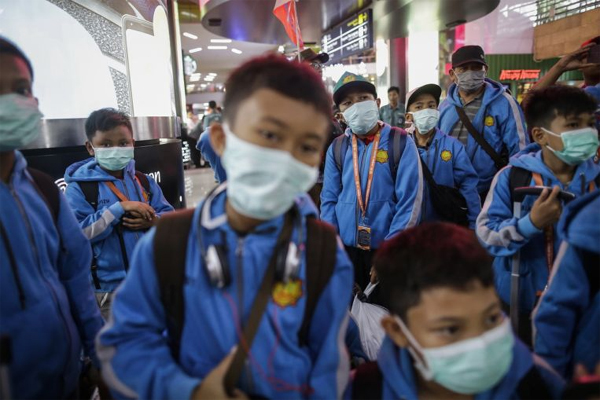 Security experts have identified good governance as a panacea to the recurring problems of insecurity in the country.
Security experts have identified good governance as a panacea to the recurring problems of insecurity in the country.
The experts, in a communique issued at the end of a three day conference at the Nigerian Defence Academy (NDA) in Kaduna, also called for the promotion of critical thinking education as a tool for combating Nigeria’s security challenges.
The conference on ‘State and Security’ was organised by NDA’s Centre for Critical Thinking Teaching and Learning (CCTTL).
It was aimed at creating actionable strategies for tackling the current security challenges facing the country.
The experts also backed the introduction of community policing characterized by service not force.
They also said government should enforce laws to check abuse of the media to disseminate falsehood, malicious and fake news that are destructive and divisive.
The communique was signed by Head of the Centre, Dr Nafisatu Muhammad, and made available to the newsmen on Saturday in Kaduna.
It said critical thinking education as a tool for combating national security, “will instill critical thinking as an attitude of mind and a tool for the practice of development.”
The participants agreed that insecurity is a global concern because of its many human and environmental dimensions that require critical thinking and education in curbing its debilitating effects on people and communities.
“The state must strike a balance among the centripetal forces of culture, ethnicity, religion, class and other indices which in most cases remain silent but visible in the struggle for political control.
“This is important for equitable distribution of public offices, goods and services as well as natural resources to curb internal conflicts and tensions that threatened the unity of the country.”
The participants recommended massive investment in education, skills acquisition and provision of employment by all levels of governance.
“The security challenges being experienced in Nigeria today range from those related to political evolution to economic and socio-cultural imbalances which are posed by population explosion and mismanagement.
They canvassed for in-depth researches of specific security challenges to identify the root causes and develop actionable solutions that will curb terrorism, banditry, kidnapping, armed robbery, herdsmen/farmers’ clashes and other organized crimes.
The participants also called for comprehensive profiling of all citizens and immigrants.
“To reduce crime rate across the nation, community policing should be encouraged and facilitated.
“It must be characterized by service not force; and must involve community consultation and interdependency.
“Community policing must be based on trust, rule of law and respect for human rights regardless of faith, ethnicity or class. It must be proactive, available, accessible, responsive, accountable, and transparent.”
The participants identified poor governance in Nigeria has given rise to security gaps which in turn breeds insecurity, conflict and terrorism.
READ ALSO: Unbelievable: Coronavirus is not as deadly as SARS, others
“Leadership at all levels of governance should, therefore, be more constructive, cooperative and democratic in addressing corruption, poverty, illiteracy, religious bigotry , ethnic conflicts and ecological problems.
“This would help to stem crisis and conflicts, communal clashes, insurgency and terrorism which are the major drivers of the emergence of Internally Displaced Persons.”
The experts said rethinking media application for the sustenance of democracy and national peace should be of paramount importance to practitioners, the state and its people.
“Information dissemination is useful for development but misuse of information is destructive, therefore, government should enforce the laws to check abuse of the media to disseminate falsehood, malicious and fake news that are destructive and divisive.
“There should not be exclusion of these aspects of diversity in the design of social, political and economic policies and programmes.
“Rather, there should the promotion and sustenance of inter cultural and religious cooperation and dialogue for mutual understanding and co-existence.”
They expressed strong optimism that the security challenges in the country would be surmounted if the recommendations of the conference are considered and implemented.(NAN)

